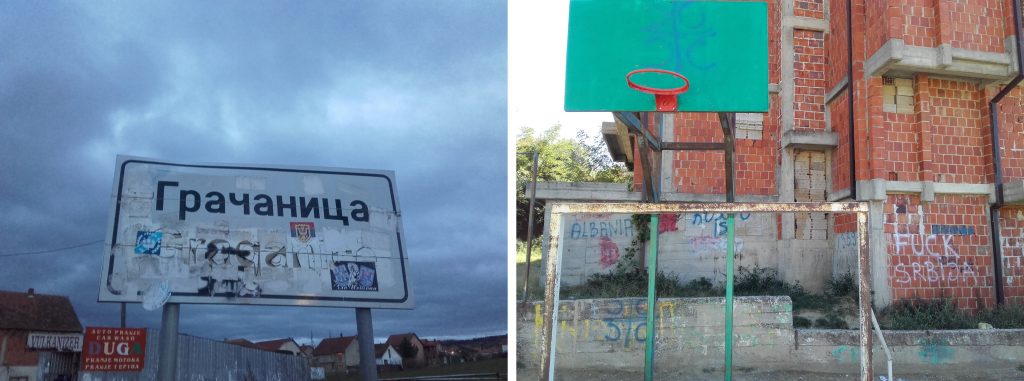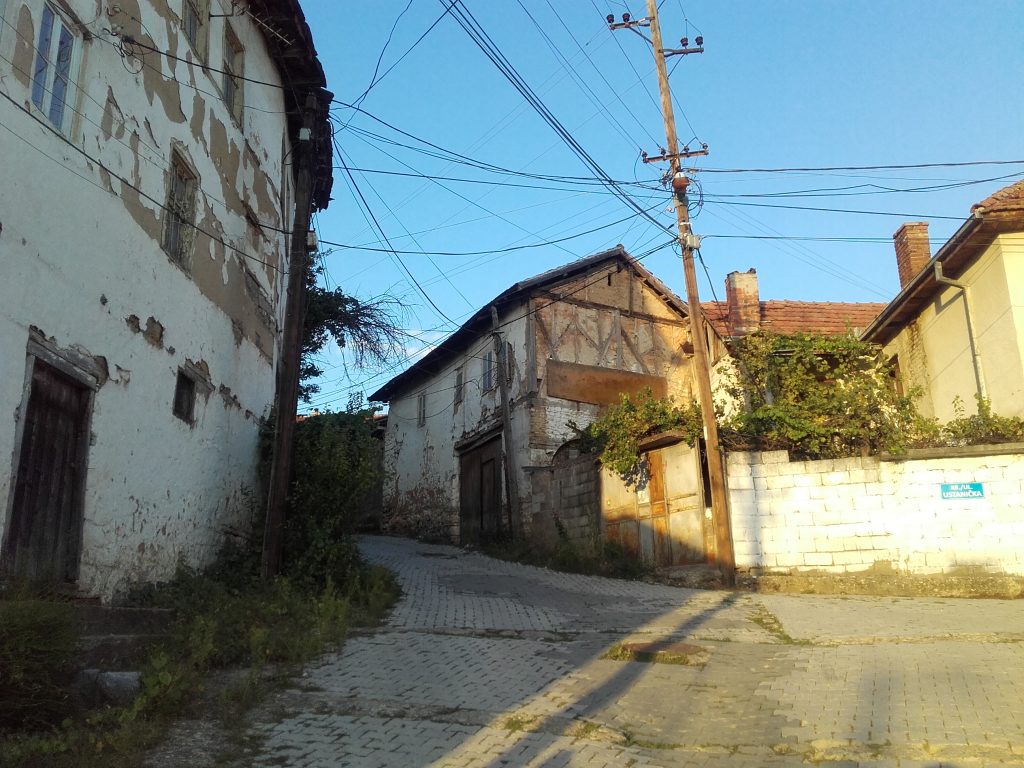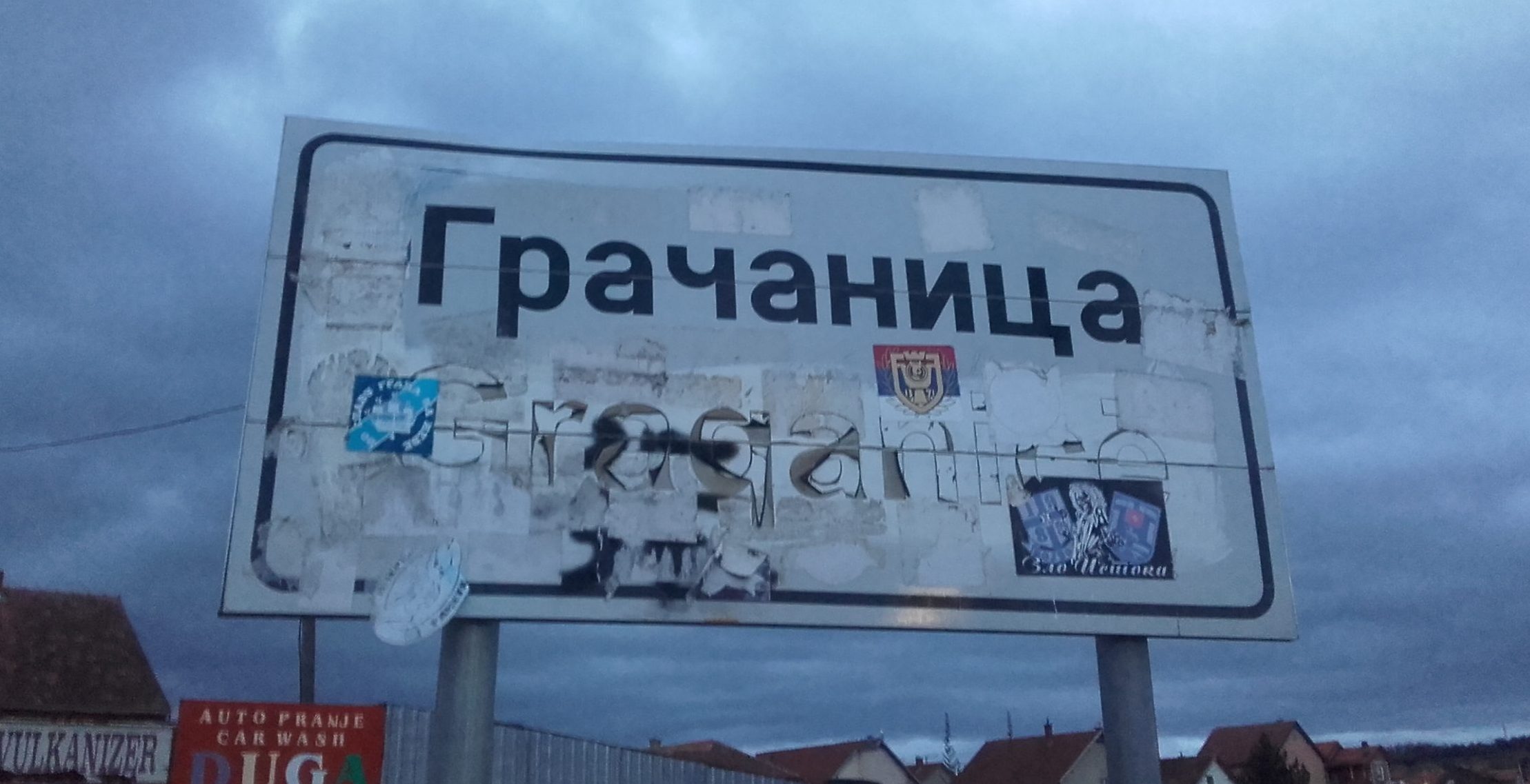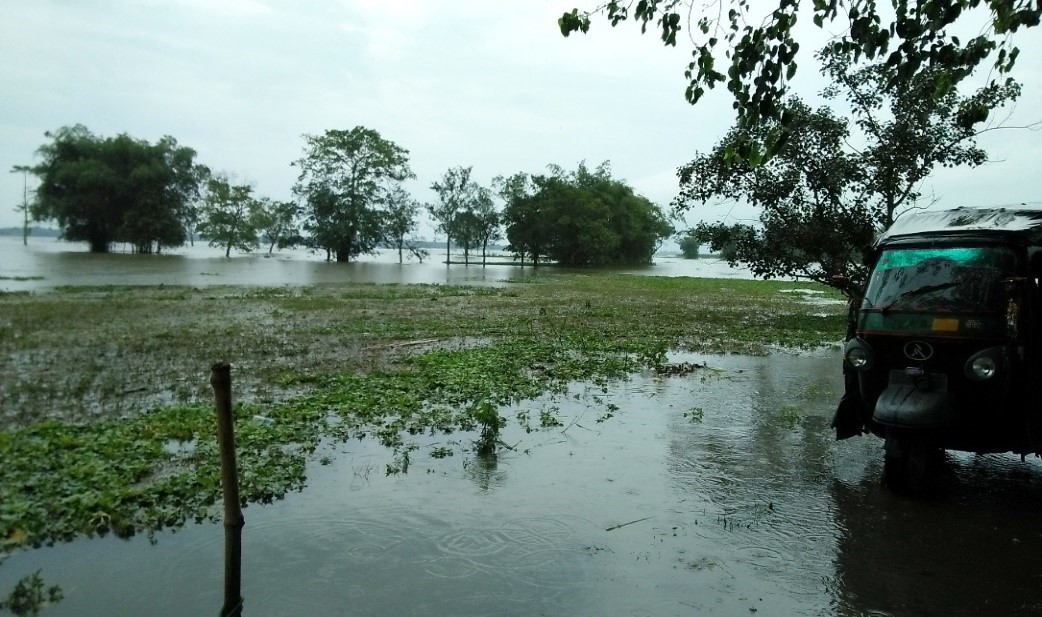In this piece, Émilie Fort shares her experience of returning home after fieldwork. She particularly discusses the long-lasting effects of emotions on the writing process. Fieldwork might be geographically and temporarily confined, but the emotions it generates are not. “It was a mistake to think that I would leave my bodily experience behind while leaving the field”, writes Émilie Fort.
_______________________________________________
Almost three years ago, I purchased a plane ticket to go home. My fieldwork was over. I got the data I needed. I was ready to start writing my doctoral dissertation. Returning to the university, I kept thinking about those I left, and in some cases people whom I considered to be my friends. I spent nine months in Kosovo, living my everyday life within a Kosovo Serb community I investigated, trying to understand how identity gets reconstructed in post-conflict context. I stayed in four Kosovo Serb areas, moving from a small quarter to a village, from a room in a private house to an apartment, and then a hotel. I experienced the daily challenges local people faced as well as the moments of collective effervescence.
Fieldwork was all about emotions and feelings: frustration, happiness, sadness, doubts and fear. As experienced researchers suggested, I used field diaries to keep a record of those emotions, which then would allow me to explore the impacts of emotions in the research process (Blommaert and Jie, 2010; Carstensen-Egwuom, 2014; Singleton Jr. and Straits, 2005). Three years later, my doctoral research is over. Looking back to the whole writing process, I realise that emotions persist long after the departure from the field. How do I cope with them? How do they impact the analytical and writing process?
Fieldwork is about a state of mind rather than a site of research
Most literature presents fieldwork through the concept of access (Bondy, 2012; Riese, 2018). Access is about gaining access, maintaining access but also leaving the field. Access is intrinsically related to the researcher’s physical field presence and her/his interaction with both local participants and the research site. The concepts of positionality and reflexivity capture those relations. They are tools to explore the impact of the researcher’s identities and correlated emotions on field access and data collection, which in turn influence the results of the study (Berger, 2015; Caretta and Jokinen, 2017; Carstensen-Egwuom, 2014; Mayorga-Gallo and Hordge-Freeman, 2017; Tarrant, 2014).
The extended conceptualisation of fieldwork – through access – proved to be particularly relevant in discussing research bias. However, it falls short in capturing middle and long-term effects of fieldwork emotions and their potential implications for research and writing processes. Geographical and temporal boundaries do not limit emotions. This is what I learned: when being back home, my mind was trapped in my research site.
The persistence of transformed representations
Of course, the way you experience field research depends on who you are. As a very empathetic person, I was perhaps too emotionally involved and impacted by the local atmosphere created by local social dynamics. Kosovo is what scholars call a frozen or intractable conflict (Bebler, 2015; Dembinska and Campana, 2017; Torosyan, 2013). Social and spatial segregation characterise the newly independent entity, which tends to complexify the relationships between Kosovo Serbs and Kosovo Albanians (Žeželj et al., 2017). In the first site I visited, fear and mistrust were still rampant within the local Serb community, regardless of whether it was founded on a false basis. Besides, I was not accustomed to living in a segregated space and to dealing with stereotypes Serbs and Albanians in Kosovo imposed on each other.

At some point, the way I represented my research object when I entered the field transformed. The everyday experiences I shared with informants and people made me aware and sensitive to their fears, their losses, and their difficulties. They passed on to me their emotions which continuously clashed with the necessary distance I tried to preserve. I began to feel insecure as they felt insecure. I represented them through the lens they represented themselves. I came back home filled with those transformed representations. At that time, however, I was not able yet to see that the long-lasting effects of my fieldwork emotions would blur my analytical skills and permeated the way I interpreted the data I collected.
In the field, I knew I was often failing to distance myself from local narratives and discourses. At the beginning for strategic access to informants, then because I didn’t want to confront them or felt marginalised. As a westerner, I was represented as having some privileges. I was able to travel and to move within the territory, what they often felt too insecure to do. I was – or felt – marginalised for performing that privilege. At some point, I just reduced my movements and mostly stayed within the places I lived. It participated in developing a sense of isolation and insecurity. Several weeks later, it happened that I grasped and comprehended the way they represented some specific issues.

At that time, I kept recording all the transformation, all the thinking and changes I experienced in relation to my research object. I thought it would be enough to ensure the awareness of my own bias. It wasn’t. How did I realise that ? Months after my fieldwork was over, I was restructuring and rewriting paragraphs and chapters from my doctoral dissertation. Gradually, I came to note that the last understanding I had about the data I collected differed from the first ones I got. They were more complete, which is a normal process I guess.
But they were also more balanced. Moving back and forth from my field diaries to the data analysis, I began to see that the transformed representations instilled the post-fieldwork writing time. Feelings of insecurity and isolation interfered with the analytical purpose of my research. I was unable to deconstruct the narratives I collected and unable to see the way they connected and made sense within the whole social and spatial contexts. Then, guilt also played an important part. I was torn between my analytical “duty” and the confidence those people gave me. I felt I was failing to respect that confidence.
Finally, I understood that it takes time to free one’s mind from fieldwork experiences and all the emotions it generates. It was a mistake to think that I would leave my bodily experience behind while leaving the field. It took me time.
From academic to fieldwork temporalities
And time will be the last point I will discuss here. Authors have already stressed that research – and particularly fieldwork research – is too often perceived as a production process (Riese, 2018). It’s a fact for experienced researchers but also for young researchers as our academic careers depend on it. Within this academic perception of time where productivity becomes a necessity, fieldwork is about collecting data, analysing it and writing papers about our objects of research. When I came back from the field I didn’t take the time to assimilate all the implications my experiences had on my research and on me. I threw myself into analysing and writing. I didn’t pay attention to the research/fieldwork temporality, which requires to take time to acknowledge both our vulnerability and the emotive relation we develop with other human beings in the field and with the site itself. It is a way to let the ongoing tensions between inescapable subjectivity and necessary distance ease.
There is a disconnection between the productivity imposed by academic temporality and the necessary distance required by fieldwork temporality. We could address this disconnection firstly through comprehending fieldwork as encompassing more than its current physical and limited understanding. This might help us to understand the writing process as incorporating a reflexive dimension. Then, we should conceptualise the writing process as an integral part of the ethnographic methodology. Besides, acknowledging that fieldwork extends months after we return home allows us to create methodological tools to develop a systematic analysis of limits, bias and failures that pervade the whole research process. As field diaries participate in documenting and reflecting on our positioning and personal trajectories in the field, we might think of writing diaries – or what suits each of us the best – which detail the impact of both our positioning and the lasting effects of fieldwork emotions on the interpretations and analytical processes.
References
Bebler A (ed.) (2015) ‘Frozen Conflicts’ in Europe. Toronto: Barbara Budrich.
Berger R (2015) Now I see it, now I don’t: researcher’s position and reflexivity in qualitative research. Qualitative Research 15(2): 219–234.
Blommaert DJ and Jie D (2010) Ethnographic Fieldwork: A Beginner’s Guide. Multilingual Matters.
Bondy C (2012) How did I get here? The social process of accessing field sites: Qualitative Research. SAGE PublicationsSage UK: London, England. DOI: 10.1177/1468794112442524.
Caretta MA and Jokinen JC (2017) Conflating Privilege and Vulnerability: A Reflexive Analysis of Emotions and Positionality in Postgraduate Fieldwork. The Professional Geographer 69(2): 275–283.
Carstensen-Egwuom I (2014) Connecting Intersectionality and Reflexivity: Methodological Approaches to Social Positionalities. Erdkunde 68(4): 265–276.
Dembinska M and Campana A (2017) Frozen Conflicts and Internal Dynamics of De Facto States: Perspectives and Directions for Research. International Studies Review 19(2): 254–278.
Mayorga-Gallo S and Hordge-Freeman E (2017) Between marginality and privilege: gaining access and navigating the field in multiethnic settings. Qualitative Research 17(4): 377–394.
Riese J (2018) What is ‘access’ in the context of qualitative research? Qualitative Research 19(6): 669-684.
Singleton Jr. RA and Straits BC (2005) Approaches to Social Research. 4 edition. New York: Oxford University Press.
Tarrant A (2014) Negotiating Multiple Positionalities in the Interview Setting: Researching Across Gender and Generational Boundaries. The Professional Geographer 66(3): 493–500.
Torosyan T (2013) To the Resolution of Intractable Conflicts: Nagorno-Karabakh and Kosovo. Iran and the Caucasus 17(4): 427–441.
Žeželj IL, Ioannou M, Franc R, et al. (2017) The role of inter-ethnic online friendships in prejudice reduction in post-conflict societies: Evidence from Serbia, Croatia and Cyprus. Computers in Human Behavior 76: 386–395.
About the research
The research reported here aims to analyse the process of identity building of Serbs population living in Kosovo by focusing on how the living environment impacts the production and reception of identification. For the purpose of this study, three cases were selected based on their distinguishing spatial configuration and chosen to address identity building through institutional and local narratives in order to examine the co-constitution process between agency and structure, which is the current conceptual framework through which identity building is studied. So far, very few studies have questioned the impact of the living environment in this co-constitution process. To analyse individual agency in the production and reception of structural identifications, I conducted an ethnographic research during nine months in three field sites, doing interviews and participant observation. I was trying to grasp the way ordinary people perform collective identities.
Related publication
Emilie Fort (work in progress) Reflections on the concept of “access”: doing ethnography in a frozen conflict context
Emilie Fort (2018) From Power-Sharing Arrangements to Identity Building: The Case of Kosovo Serbs in Kosovo, Ethnopolitics, 17:5, 503-518, DOI: 10.1080/17449057.2018.1511159
For citation: Fort, E. (2020) Acknowledging the long-lasting effects of fieldwork experience: emotions and the writing process. LSE Field Research Method Lab (28 September 2020) Blog entry. URL: https://blogs.lse.ac.uk/fieldresearch/2020/09/28/acknowledging-the-long-lasting-effects-of-fieldwork-experience/






2 Comments